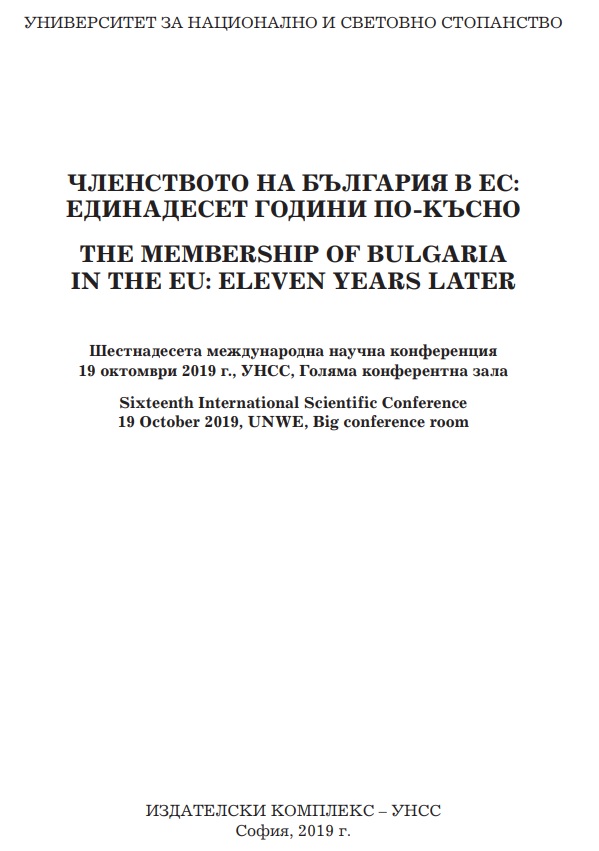Как миграцията се отразява върху новата многогодишна финансова рамка Съюзи в рамките на Европейския съюз
The Impact of Migration on the New Multiannual Financial Framework of the European Union
Author(s): Atanas Pavlov
Subject(s): Politics / Political Sciences, Politics, Economy, Supranational / Global Economy, EU-Approach / EU-Accession / EU-Development, Public Finances, Fiscal Politics / Budgeting, Asylum, Refugees, Migration as Policy-fields
Published by: Университет за национално и световно стопанство (УНСС)
Keywords: EU budget; Multiannual financial framework
Summary/Abstract: This analysis provides an assessment of some of the most important elements of the EC proposal for new 2021-2027 MFF and new system of own resources, mainly focusing on the issues regarding migration and their impact. Also, the analysis provides an overview and comparison between the new MFF and the current one. For the expenditure side of the EU budget, the European Commission has proposed a long-term budget of €1,135 billion in commitments (expressed in 2018 prices) over the period from 2021 to 2027, equivalent to 1.11% of the EU27's gross national income (GNI). This level of commitments translates into €1,105 billion (or 1.08% of GNI) in payments (in 2018 prices). Superficially, this amounts to an increase on the 2014-2020 MFF, which is an estimated 1.02% of EU-28 GNI (commitments), but a number of factors make comparisons difficult. On the revenue side of the EU budget, the Commission has taken the political opportunity presented by Brexit to propose a gradual phasing-out of most of the correction mechanisms that discount certain Member States' contributions to the EU budget. The proposal for a new own resources decision also takes up the recommendation of the High-Level Group on Own Resources to introduce new own resources explicitly linked to EU policies.
Book: Членството на България в Европейския съюз: единадесет години по-късно
- Page Range: 484-492
- Page Count: 9
- Publication Year: 2019
- Language: Bulgarian
- Content File-PDF

